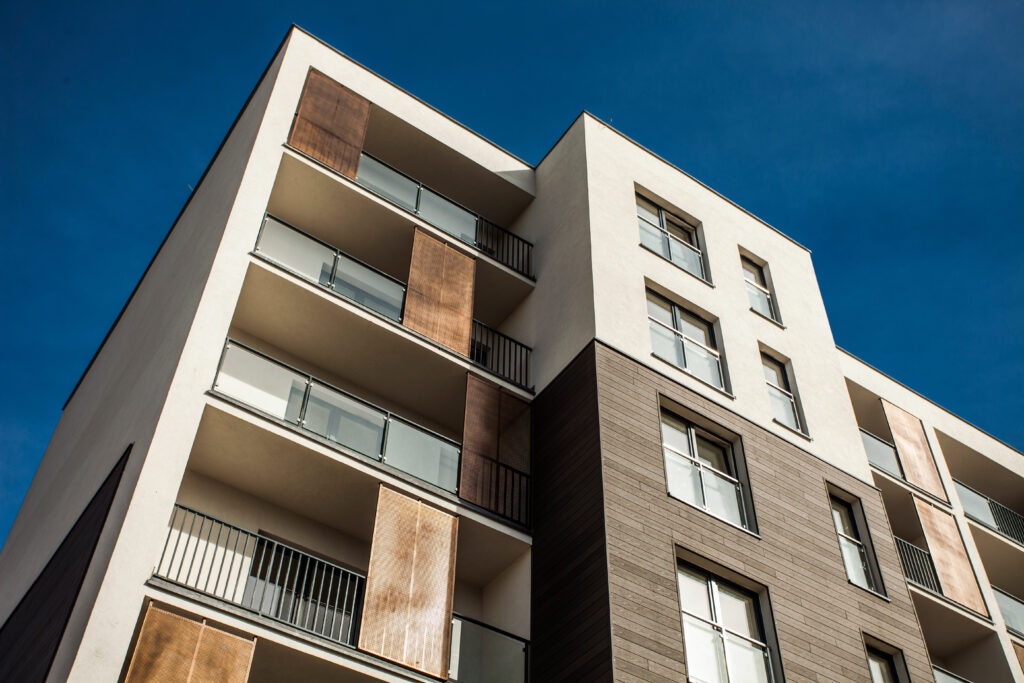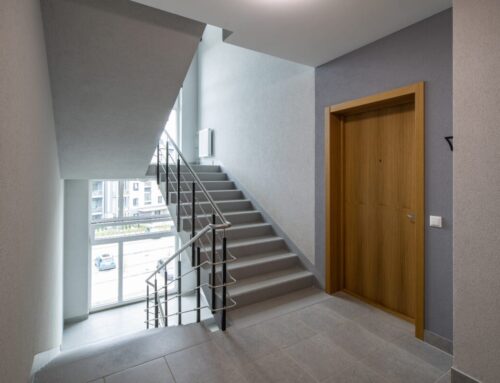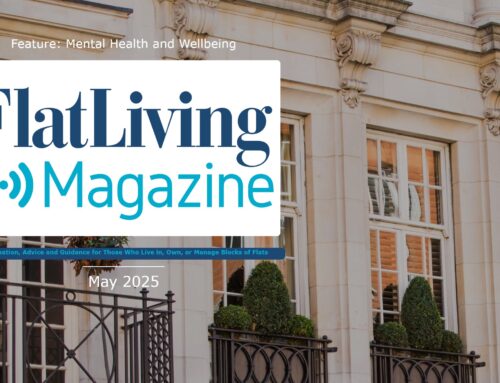Belinda Bagnall, Managing Director of Residentsline, provides more information about insurance and freehold and how it can help you.

Multiple-occupancy buildings need varying cover depending on their construction, the number of flats and the amenities involved as well as the usual factors such as building age, current safety measures and location.
Navigating the intricacies of this business is best entrusted to the experts. However, as a freeholder, understanding the essential types of cover is crucial.
Here we’ll be explaining the cover you should be considering and how to get the best out of your broker or intermediary.
Cover You’ll Need as a Freeholder
This will depend on the type of block or building you’re insuring, but most will need to consider:
- Buildings Insurance (Blocks of Flats Insurance)
- Lift Insurance
- Terrorism Insurance
- Roads and Private Estates Insurance
Every freeholder of a multi-occupancy block will need Buildings insurance. The cover provided by different policies will vary widely- you should always make sure you fully understand what your policy does and does not cover. Always read the small print as even some of the most expensive options may not provide the cover you need.
Your blocks of flats insurance should insure your building against:
- Fire
- Lightning
- Earthquake
- Storm
- Flood
- Malicious Damage
- Theft
- Subsidence
- Ground Heave and Landslip
It should cover all areas, including:
- Interior decorations, light fittings and fixed glass
- Kitchen and bathroom fixtures
- Outbuildings, garages and car ports
- Spas, swimming pools and tennis courts
- Garden walls, roads, car parks, lampposts, underground pipes, cables and overhead services
- Landlord’s fixtures and fittings
- Lessee’s improvements
- Any common areas including furniture, furnishings and other property of the Insured or for which the Insured is responsible
Residentsline’s blocks of flats policy will also cover:
- Loss of/damage to contents of communal areas
- Alternative accommodation or loss of rent
- Legal liability for injury to employees
- Legal liability for injury to the public or residents
- Replacement of communal door locks following a theft of keys
- Loss of Residents’ Management Company cash
Working with a Specialist Intermediary
The complexities of blocks of flats insurance and the hefty responsibility you take on for insuring the building as the freeholder can make this a daunting process.
The optimal solution is to engage a specialist insurance intermediary, an independent professional who will diligently work on your behalf to ensure the task is accomplished proficiently. This approach grants you complete peace of mind once all decisions are finalized.
An intermediary will gather the information they need from you to figure out exactly what levels of cover your building may need. Their next job is to find you the best price for the coverage required. To do this they will approach a number of different specialist insurers for quotes, giving you access to several suitable options at different price points. You can make a truly informed decision, safe in the knowledge that you have found the best value for money for you and your leaseholders without compromising on cover.
In most cases, insurance companies would prefer to deal with a knowledgeable Intermediary rather than directly with clients- particularly in a specialist field such as blocks of flats insurance.This is because, generally speaking, an experienced intermediary will often have a better understanding of customers’ requirements than the customers themselves.
In terms of their contact with you, using an intermediary has many advantages. They can provide quotes, summaries of cover and sample policies to help ensure you understand the cover being provided. Some, like Residentsline, can also issue your policy and renewal documents – streamlining your personal admin.
Residentsline offers you the added benefit of “Manage Your Block” at no extra cost, ensuring the security of your documents.
The Financial Conduct Authority regulates and authorizes all brokers and intermediaries operating in the UK, providing you with the reassurance that:
- There is someone you can complain to if things go wrong.
- Your money is held in an ‘insurance broking account’ which the broker cannot dip into to run their business.
- The solvency and working capital of your broker will be regularly tested by the FCA.
- Your broker will have many years brokering experience and has a first duty of care to you and not to the insurer.
If you partner with a longstanding and trusted intermediary or broker, they can offer valuable guidance in various areas, including risk management, key legislation changes, and strategies to minimize risks while ensuring comprehensive coverage for unavoidable risks.
What if Your Managing Agent is Responsible for Insurance?
Agents can be FCA authorised in their own right, enabling them to obtain quotes from many sources. Royal Institute of Chartered Surveyors (RICS) members may be authorised under their RICS membership, but this is not an automatic right. Some agents are Appointed Representatives. This ties them to one broker or intermediary but allows them to complete many functions, such as notifying insurers of a claim and arranging an insurance policy.
Agents can also be Introducer Appointed Representatives, which allows them to introduce insurance products to their clients, but they cannot decide which product is suitable or arrange cover, nor can they notify a claim- although they can be involved once the incident has been notified.
If you are not sure which, if any, of these categories your managing agent may fall into, just ask. They should be only too willing to explain what their status in terms of insurance means for you and your fellow leaseholders. To check the current FCA status of any brokers, head to the FCA website.
On the other hand, it is also worth noting that freeholders can arrange insurance themselves, as there is a case for having more freedom, transparency and control doing this yourself.
This decision will ultimately depend on the freeholders preferences, the property and any complexities. There is also the will of the freeholder to take on the responsibility of managing their insurance directly.
To read more from Residentsline, please click here. Alternatively, click here to find more from Flat Living. Head to the Residentsline website for information on all of our products and services or, if you’d like to speak to one of our fantastic, specialist team, give us a call on 0800 281 235.




Leave A Comment